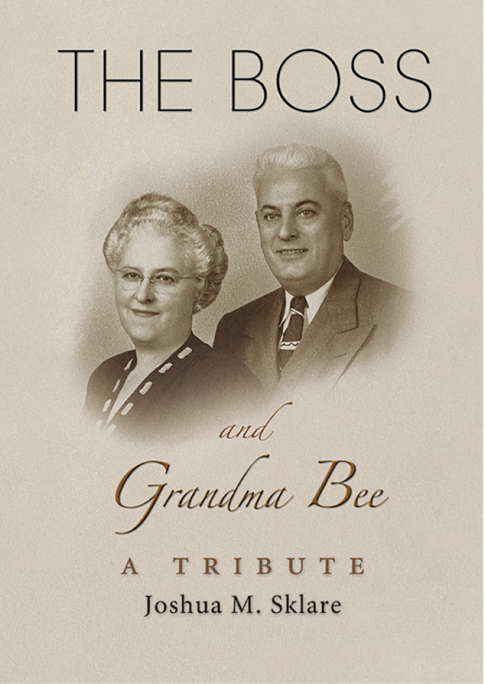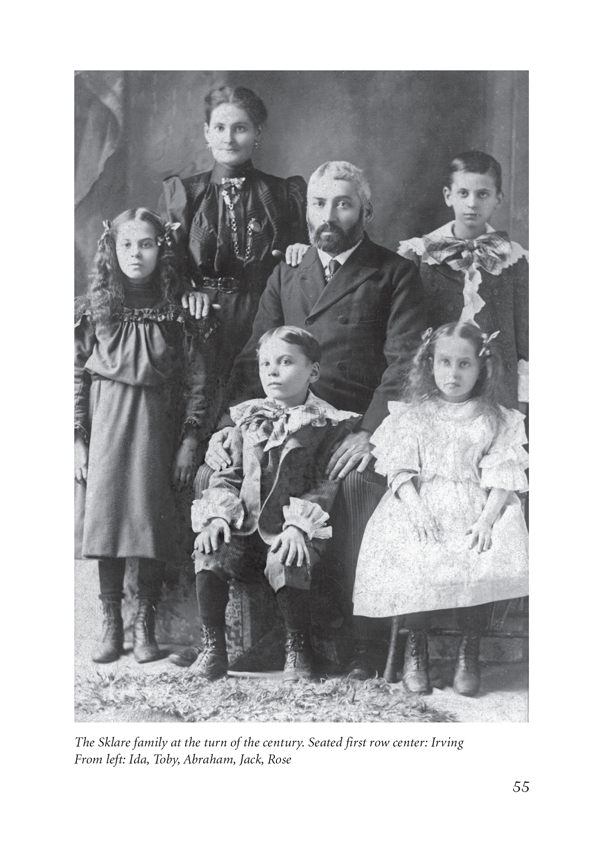Irving Sklare (1893-1976) was known by many, including his three sons, as the Boss. And with deference to both George Steinbrenner and Bruce Springsteen, he more than deserved the title. It is true that the moniker developed naturally enough from his position at the Lippman Lumber Company, where he was in management and had direct authority over the eight or ten men who worked there. It is not unusual, particularly in the American South, to refer to one’s work supervisor by that name, but it was not strictly because of the power that he wielded that people called him the Boss; the moral authority that he commanded was what made the title such a good fit. He did not start life out destined to be a boss. In fact, from his humble origins on Chicago’s West Side, it seemed an unlikely possibility. Irving Sklare was the son of Lithuanian Jewish immi grants who had arrived in America only a year and a half before his birth. They arrived with his oldest brother Jack, still a baby, and in addition to Irving, his mother gave birth to two girls, Ida in 1892 and Rose in 1895. His father, Abraham Sklare, was a physically imposing and deeply religious man who struggled to earn a living throughout his entire life. His mother, Toby Gruzd Sklare, came from a small town in north central Lithuania, and Irving was extremely attached to her his entire life. The home was sparse in physical and material comforts but rich in the Jewish ethical tradition in which Abraham and Toby Sklare had been steeped. It was the personality of his mother, Toby, with her warmth, compassion and sensitivity, which would leave an imprint on the Boss. He was not only deeply attached to her, but to the ethical mindset that she represented.




